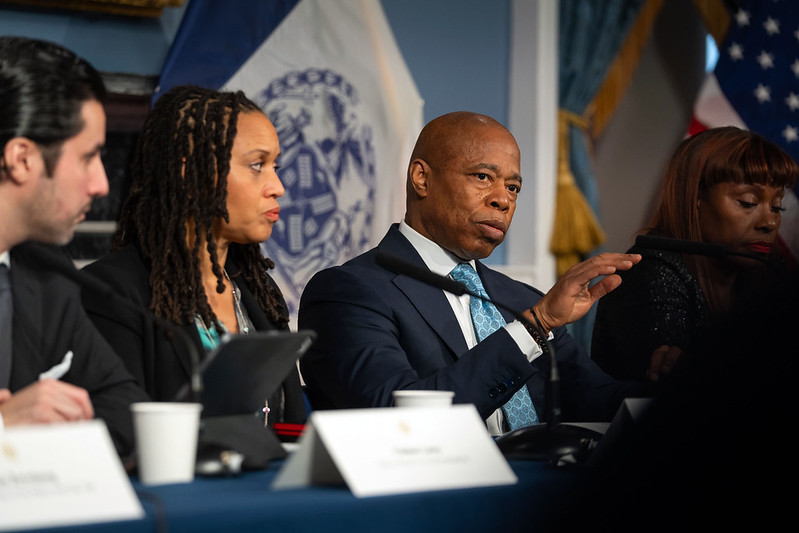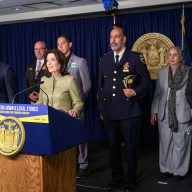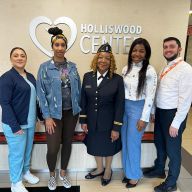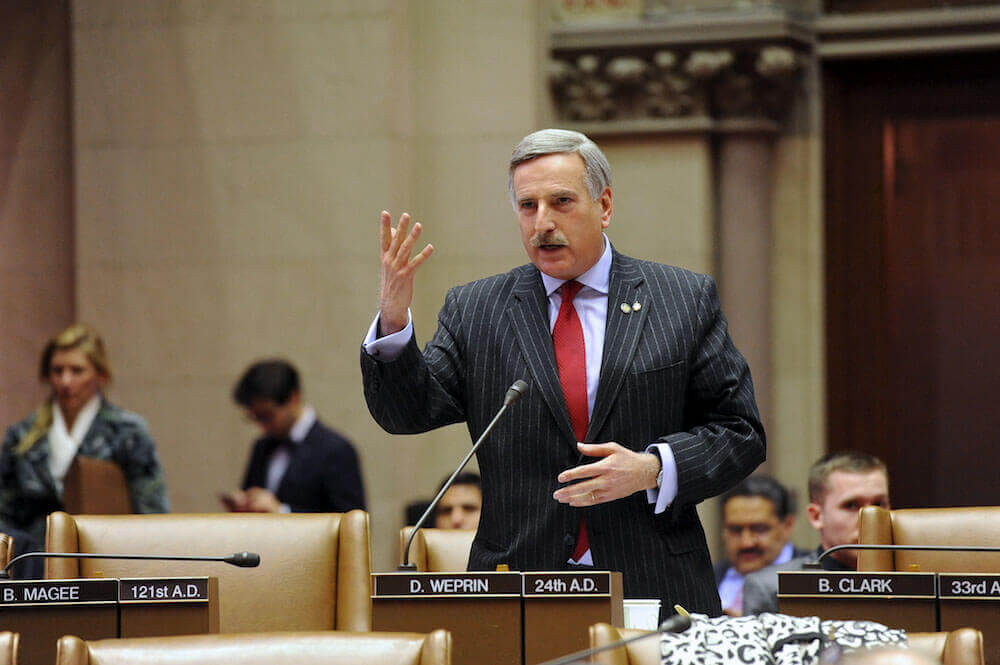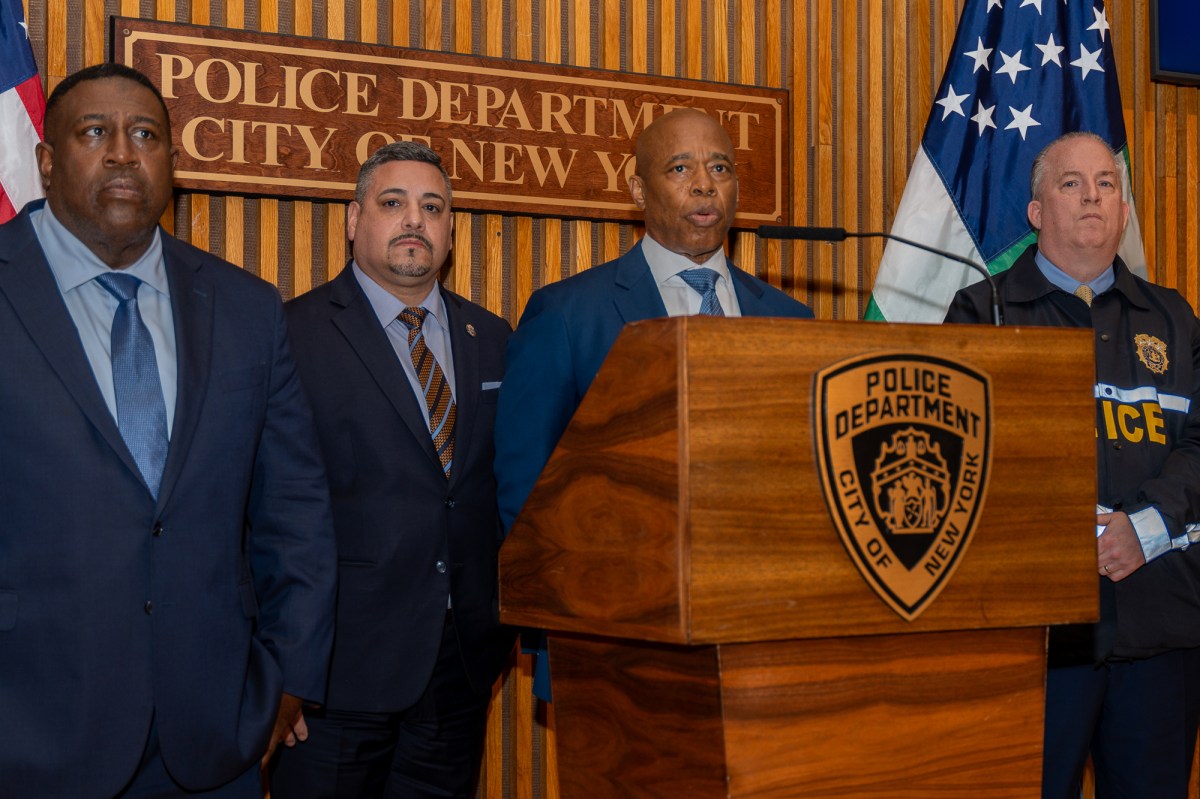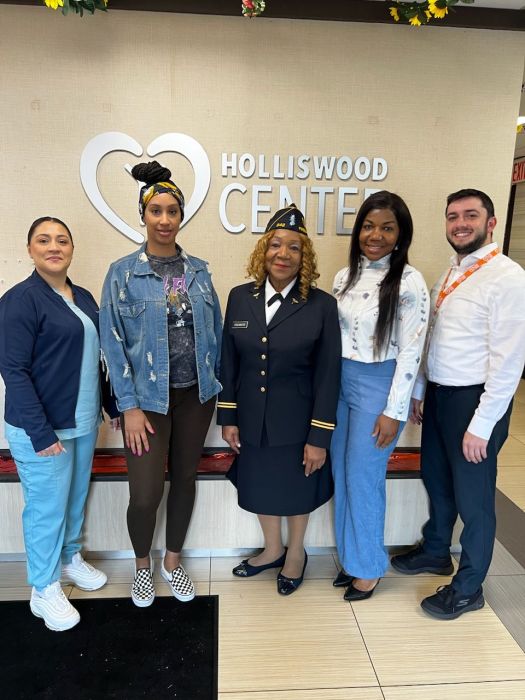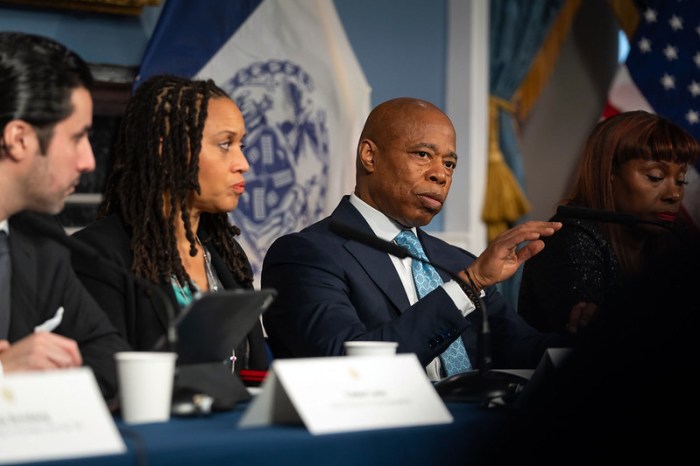By Courtney Dentch
Southeast Queens residents were urged to pack a “go bag” in case they need to evacuate their homes and to call the police if they see anything suspicious by government and hospital officials at a town hall meeting on hometown security Monday night.
About 100 community members attended the forum, organized by U.S. Rep. Gregory Meeks (D-St. Albans), to get a lesson in what they can do to prepare their homes against a terrorist attack and what government agencies and hospitals are doing to help them.
Panelists, including representatives from the NYPD, the city's office of emergency management, the Port Authority of New York and New Jersey, and some of the borough's private and public hospitals, talked about potential threats, including the use of nuclear, biological and chemical weapons.
“The world has changed so drastically from the way it was,” Meeks said. “Once the Atlantic and Pacific oceans protected us on either side from an attack. That's no longer true. 9/11 changed the world as we know it.”
The Police Department is working with a host of local, national and international partners to prevent future attacks on Queens and the rest of the city, said Deputy Inspector Gary Scirica of the Queens South counter-terrorism unit. The department has strengthened its information network across the world, but it still needs support from residents, he said.
“If you have a gut feeling, anything that makes you uncomfortable, anything that makes you suspicious, call us,” Scirica said. “It's the only way we'll be able to uncover the enemy living with us.”
Tips can be reported by calling the terrorism hotline at 1-888-NYC-SAFE, and all calls can be kept confidential, he said.
In case there is another attack, there are a number of things southeast Queens residents can do to increase their chances of survival, said Michael Den Dekker of the city's OEM. Families should discuss where to meet if they get separated and how to get in touch with each other. Den Dekker suggests picking a meeting location near home and another outside the community as well as choosing a local and long-distance contact person that everyone can call.
Packing a “go bag” with emergency necessities is also recommended. The bag should contain food, water, a battery-operated flashlight and radio, comfortable shoes, copies of important documents (such as a passport or birth certificate), and copies of the meeting and contact plan, he said.
“You can just pick up this bag and get out,” Den Dekker said. “You won't have to run around the house and get everything together.”
Residents should also stock their cupboards with extra water and non-perishable food in case they have to stay inside their home after an attack, he said.
Medical facilities, including Jamaica Hospital, Queens Hospital Center and Elmhurst Hospital Center, are also preparing in case of attack. Not only are they stocking up on pharmaceutical supplies, but they are also constantly reviewing their plans to handle patients from chemical or biological attacks, said Mark Marino director of emergency management at Jamaica Hospital.
“Our job is to make sure we can care for whatever casualties result from that and still care for our patients,” he said.
Bioterrorism attacks, such as smallpox, anthrax and the bubonic plague, are of particular concern, and the hospitals need to improve their ability to isolate contagious patients and to decontaminate people of the diseases, said Dr. Joseph Masci, of Elmhurst Hospital Center.
“Bioterrorism is more insidious in that it's self-perpetuating,” Masci said. “There can be more casualties and it can be harder to track and harder to trace back to its origin.”
In the case of smallpox, health-care workers and emergency responders such as police officers and firefighters, can be vaccinated, Masci said, but some residents are still concerned about getting the shot.
“There was a rush for everyone to take this vaccine and then people who had cardiac pathologies were falling ill or dying,” said Alexander Saunders of the St. Albans Congregational Church, referring to two people who died of heart attacks three to five days after they received the vaccination.
Masci said the hospitals and the government are working to prevent future side effects.
“Because the side effect was unanticipated, the plan was revised to restrict people who were getting the vaccine,” he said. “The overall risk of the vaccine is lower than we anticipated. There are efforts under way to make vaccine safer.”
Reach reporter Courtney Dentch by e-mail at TimesLedger@aol.com, or by phone at 718-229-0300, Ext. 138.







